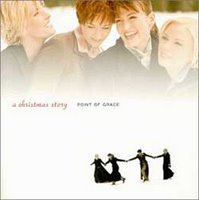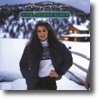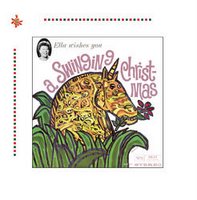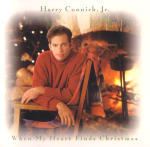Author: H. Paul Jeffers
Publisher: William Morrow (a division of HarperCollins), 2000 (Out of Print)
What do you know about Canadian history?
Okay, that might be a strange way to start a review of a book that is the biography of an American president. But, while reading the book, An Honest President: The Life and Presidencies of Grover Cleveland, I couldn't help but think of a conversation about Canadian history I had with a Canadian this past summer. We were talking about how so few Americans have any knowledge of the history of other countries. We could have spoken about how so few Americans have any depth of knowledge about American history, but that's another conversation for another time. I confessed my own ignorance, and asked the gentleman for a suggestion of some good, readable books exploring Canadian history. He suggested the books of Pierre Berton, who is, as he explained, Canada's answer to Stephen Ambrose. I promised to look up Mr. Berton's books as soon as I returned home. And so I did. Unfortunately, our library has a paltry selection of his books, and I wasn't immediately in the mood to canvass Canada's great military triumphs in the War of 1812. So, I've put off my promise until I whittle down some more books on my already lengthy list. But one of the titles of Pierre Berton's books has stuck with me. It was 1967: The Last Good Year, which I found an intriguing title, and one I am likely to request soon from the inter-library loan. While ruminating on that title, I asked Jason what he thought America's "last good year" was. He said, maybe, 1963 -- before LBJ got his grubby hands on the federal reins. I said that, after reading the heartbreaking story of the Hoover and Franklin Roosevelt eras in FDR's Folly by Jim Powell, I was thinking that the "last good year" was 1928. Jason said, "Yeah, I could see that." That's what happens when you get two libertarians with a sound foundation in economics together -- we see doom spelled out in every governmental misstep, in every increase of governmental power. Now, having read H. Paul Jeffers excellent biography of our country's 22nd and 24th president, I am tempted to say that America's last good year was really 1897, when Grover Cleveland left office for the last time. What a man!
I shudder when I hear of a candidate whose lifelong ambition has been to hold political office. Goodness me -- that's the last sort of person we should ever allow into a position of power. Rather, I would have all men be dragged reluctantly into office and serve under duress out of a sense of duty to party, country and Constitution. Such it was for Grover Cleveland -- a man of such unassuming modesty and unimpeachable integrity, that (if you are anything like me) you are left with a longing for even half such a personality to inhabit again the now-sullied walls of the Executive Mansion. I must admit that I have a little bit of a crush on this portly, mustached gentleman of a bygone era who has been in eternal slumber almost 100 years.
So, forget about Canadian history for a moment -- what do you know about Grover Cleveland?
Well, many of us know that he is the only president to have been elected to two non-consecutive terms. Some of us who visited the First Ladies exhibit at the Smithsonian might remember that he is the only president ever to have gotten married in the White House. Some of us with a soft spot for candy might remember that the Baby Ruth bar was purportedly named after his eldest daughter -- while others may simply know that her sister Esther was the first baby ever born in the Executive Mansion. Some of us may also remember having heard, while grimly bearing the Clinton years, that Grover Cleveland had fathered a child out-of-wedlock, which he admitted to readily when confronted with that scandalous tidbit during his first presidential campaign -- thus diffusing any punch that revelation might otherwise have held. Some of us might also remember having heard, while grimly bearing the debacle that was the 2000 election controversy, that Grover Cleveland also lost the presidency when running the first time for a second term by losing the electoral college vote, while winning the popular vote. Far too few Americans have ever heard of his magnificent management of the economic depression of the 1890s, his courage in the face of opposition from without and within his Democratic party, his bold stance against tariffs, his constant defense of the gold standard, his incredible humilty in performing the duties of what he saw as a sacred trust given to him by the people of a country he dearly loved.
I really enjoyed this biography, because it was written by an unusual sort of presidential chronicler. Mr. Jeffers has, based upon the "Also by H. Paul Jeffers" list adjacent to the title page, written books, both fiction and non-fiction, that span a diverse ocean of subjects: from pot-boiler mysteries to true crime; from a history of Santa Claus to a history of Scotland Yard; from Hollywood gossip to an appreciative tome extolling the virtues of cigar smoking. Among his many efforts are at least three books on Theodore Roosevelt. What he brings to the life story of Grover Cleveland, then, is a fiction writer's sense of plot and drama, a non-fiction writer's ability to condense vast research into a readable format, and a presidential historian's eye for placing the events of an administration into the larger context of the American continuum. These attributes culminate in a very satisfying look at an unjustly forgotten Commander-In-Chief.
Grover Cleveland's early life could almost read as a blueprint for typical 19th Century Americana. He was born Stephen Grover Cleveland on March 18, 1837, the fifth child and third boy of Richard, a Presbyterian minister, and Ann Cleveland. He grew up in modest financial circumstances under a strict, yet tender, upbringing that consisted of emphasizing both Christian virtue and old-fashioned American fun. His father's death when Grover was sixteen left him with dashed dreams of college and a new responsibility to help provide for his mother and younger siblings. One of his older brothers found him a position teaching in New York City at the Institution for the Blind. He held that job for a year, before deciding to try his luck in the western city named for his paternal ancestor Moses. On his way to Cleveland, OH, he stopped off to visit his uncle, Lewis F. Allen in Buffalo, NY. His uncle persuaded the young Grover to abandon Ohio and settle in town, where his uncle could use his influence to find him an assitant position in a law firm where he could study to apply to the New York State Bar. At this time, law was not something for which a degree was needed to practice -- many young lads of bright minds, ambitious natures, and meager purses could "read" the law and then apply to the state bar to practice, as did Abraham Lincoln. Grover Cleveland welcomed his uncle's concern and support and did as he suggested. Within five years he had completed his studies and was granted his law license. In the meantime, he had become involved with party politics by working for the election campaign of James Buchanan. Thus far, there is nothing very remarkable about Grover Cleveland's life. It could have been the life story of any young and opportunistic man in a young and opportunity-filled country. And yet, little did he or anyone else know that after Buchanan finished his one term in office, Grover Cleveland would be the nation's next Democratic president.
So, what was it about this man among many men that fomented the makings of a great future president? As cited biographer Allan Nevins wrote in his 1932 work, Grover Cleveland: A Study in Courage, "He had no endowments that thousands of men do not have. He possessed honesty, courage, firmness, independence, and common sense. But, he possessed them in a degree that others did not." (p. 347) And what is most remarkable about Grover Cleveland was not only that he had an abundance of qualities that make an honorable man, he had the integrity not to let those qualities be compromised by power, persuasion, or politics. Many a man starts out with the right ideas and the correct philosophies, but too many times those virtues fall by the wayside when it is politically expedient to overlook them for immediate gain. That is a route that Grover Cleveland is most remarkable in not having taken.
He got his start in politics by accident. As an assistant district attorney in Buffalo, he was essentially acting as the D.A., since the elected district attorney was elderly and infirm. In the 1865 election, he ran for D.A., but lost. He might never have run again for office, had not his financial situation demanded a new vocation. He was the primary provider for his mother and two unmarried sisters. His eldest brother, William, was a poor minister supporting his own family in Southhampton, Long Island. His two other brothers were fighting for the Union in the Civil War. Because of his obligation to his family, Grover Cleveland paid a substitute to fight in his place. Money was very tight, even in his state of happy bachelorhood. While considering his future course, he was approached by the Erie County Democratic Party to run for sheriff. Since this office would mean a financial boon, he agreed to be their candidate. He won the position (in a largely Republican county) by only 303 votes. (p. 33) Since he was not running against Christine Gregoire, he was allowed to keep all those votes and took his new office on January 1, 1871, when he was almost thirty-four years old.
So seriously did he take his responsibility as sheriff, that he did not shirk his duty to perform executions of criminals, though he found the task troubling and distasteful. He served his two-year term then went back to private practice (remember when politicians would do that?). Though known as a sober, careful, deliberate man in his professional life, Grover Cleveland was quite the hombre after hours. He spent much of his spare time in saloons and cafés where the rough-and-tumble local men hailed him as "Big Steve." (p.32) And, though he professed a commitment to bachelorhood, there were women too. One particular lady was well-known to many of the men in Buffalo, and "when Maria [Halpin] gave birth to a son on September 14, 1874, speculation and tremors of trepidation as to the paternity of the child ran rampant through Gorver's circle of friends and associates. But this crisis passed for all but one of them when Maria declared that Grover was the father and that she had named the child Oscar Folsom Cleveland." (p. 38) She probably knew that out of all the (ahem) companions she entertained, Grover Cleveland was the most likely again to do his duty and not refuse to pay the fiddler for the light he tripped fantastic. True to his established character, Grover agreed, reluctantly, to accept the responsibility to provide financially for the child. Interesting to note, but something Mr. Jeffers lets pass without comment, is that Oscar Folsom (the little boy's first and middle names) was Grover Cleveland's friend and law partner and the father of Frances Folsom. More about Frances Folsom later.
Next, Grover Cleveland was nudged into accepting the Democratic candidacy for mayor of Buffalo. He was seen as the only Democrat who could win enough Republican and independent votes in a town still heavily Republican. On October 25, 1881 he addressed the delegation that had unanimously nominated him with his first convention speech. His message he later distilled into the phrase, "Public officials are the trustees of the people," and called for fiscal conservatism and budget scrutiny -- lower taxes with less expenditure. (p. 44) He was elected, and took office in January 1882. He soon lived up to his campaign promises (a moment to allow the collective gasp from today's population to reverberate 'round the room and die out -- okay) and became known as Mayor Veto, since hardly a proposal the City Council sent to him for signing was given that precious scrawl of ink. Hello? George W.? Buffalo loved him, and he loved Buffalo.
He was soon tapped again by the Democratic Party to run for governor of the state of New York. Though he did not want to leave his adopted home town, he acceded for the good of the Party. His honesty and integrity flew before him like a banner. As a cited biographer Robert McElroy wrote: "Had Grover Cleveland been a politician, with the record of a spoilsman behind, his promises would mean little. They might have deceived a few of the simple, disgusted a few of the honest, caused mirth to a few other spoilsmen, and thus fulfilled their intended mission; for Americans had long since learned that, as the devil can quote Scripture, so the most dangerous type of demagogue can sing of ideals in false notes not easily distinguishable from true [the author does not note when Americans unlearned this]. But Mr. Cleveland had already put into practice the ideals which he announced, and Republicans bent on reform rallied to his support with an enthusiasm equal to that of his Democratic followers." (p. 57) His Republican supporters became known as the "Mugwumps," an Algonquin word meaning "chief." At first used derisively, this group became a major factor in helping Grover Cleveland win both the 1882 gubernatorial election, as well as the 1884 presidential race.
As New York's governor, he was given the affectionate nomenclature "Grover the Good." And he was good. He had distilled his mayoral message even further to "Public Office Is a Public Trust." He lived that motto with every decision that came to him. He was famous for deliberating excruciatingly over every bill the state legislature sent to him, again vetoing the overwhelming majority of them. He made unusual political allies, such as the young Republican firebrand Theodore Roosevelt, and mind-boggling political enemies, like the Democratic vote machine Tammany Hall. He was a fiercely independent Democrat, and he gave his party hope of recapturing the political predominancy that had eluded them since the Civil War. So, when they again approached him, this time for a go at the presidency, Grover gave in and assented, against his own desires and inclinations.
If you are of the mind that campaigning in the days before the electorate was bombarded with campaign commercials and saturated with soundbites and immersed in incessant media coverage was somehow more genteel and seemly, then you must examine the presidential election of 1884. The Republicans delved into Grover's past, trying to find enough rope there to hang him. They discovered little Oscar Folsom Cleveland, living with adopted parents in western New York, and the next day Buffalo's anti-Cleveland newspaper bore the sensational headline: A TERRIBLE TALE. A DARK CHAPTER IN A PUBLIC MAN'S HISTORY. THE PITIFUL STORY OF MARIA HALPIN AND GOVENOR CLEVELAND'S SON. (p. 106) Grover's campaign managers wrote to him to ask him what the party should say. He replied by telegram: Whatever you do, tell the truth. (p. 108) Thus, Governor Cleveland diffused a potential political bombshell with the public official's most powerful, but least used, weapon: honesty. Still trying to use the illicit affair against him, Republican politicos coined the catchy chant: "Ma! Ma! Where's my Pa?"
Not to be outdone, Democrats invented their own electoral ditty that brought to the forefront Cleveland's opponent James G. Blaine's questionable ethics: "Blaine, Blaine, James G. Blaine! The continental liar from the state of Maine!" (p. 111) I only wish we had this kind of creativity in today's smear campaigns -- Octobers and Novembers would be a lot more fun!
The Republicans came back with the fact that Grover Cleveland had evaded service in the Civil War by paying a substitute to take his place. This tidbit was as easily deflated as the Halpin accusation, being owned up to by the governor, and being most reasonably explained by his former position as sole provider for his mother and younger sisters. It is hard to hold filial responsibility against a man.
Soon, in the closest election on record (only 24,000 votes separated the two candidates), Cleveland and the Democrats took over the executive branch of the government. The Democrats and Mugwumps had a new ending for the derisive chant of the Republicans: "Ma! Ma! Where's my Pa? Gone to the White House. Ha! Ha! Ha!" With the job came the headache of appointing myriad political allies to federal positions, with many obscure names with dubious qualifications coming out of the woodwork to demand to be put on the payroll. The enormity of this task can be seen in these numbers: of a federal "government payroll of about 126,000, all but 16,000 got their jobs by appointment by the president." (p. 129) This was the kind of thing that disgusted Cleveland, and he was known to scrutinize all applications with his customary skepticism and reply in no uncertain terms to those absolutely unqualified for the positions they desired. While this did not strew his path with rose petals from party loyalists who were expecting payback, it did win him the respect of the American public.
Grover Cleveland did a bunch of great stuff as president, most of which would not be seen as great nowadays in this entitlement society in which we live. But, for libertarians like me who glory in the government's staying as small and unobtrusive as possible, having a president who does not see himself as an innovator or a visionary, but rather as a strict Constitutional constructionist is so refreshing and grand that you just want to kiss that firm, mustached mouth of his in gratitude. For this was the late 19th Century, when everything started going to hell around the world, but Grover Cleveland held fast and did not let the beacon of liberty flicker and die. Civil War veterans wanted compensation for disabilities not resulting from the War. Cleveland vetoed that bill. He championed lowering or eliminating tariffs in an economy that was very protectionist, saying, "If every other man in the country abandons this issue, I shall stick to it." (p. 205) He would not hear of abandoning the gold standard. He put much thought and eloquence into his arguments, so that even his detractors could not find fault with his conscience. When he vetoed a bill that would authorize $10,000 to Texas farmers who had been hit by drought, he included in his attached reasoning a memorable phrase: "Though the people support the Government, the Government should not support the people." (p. 194) And he also stated: "Federal aid in such cases encourages the expectation of paternal care on the part of the Government and weakens the sturdiness of our national character." (FDR's Folly by Jim Powell, p. 269)
Running against Benjamin Harrison, a Civil War veteran, in 1888, Cleveland did not soften or change his message. Never one to go into any situation with his finger up to test the wind, Grover stated, "What's the use of being elected or re-elected unless you stand for something?" While his message still resonated with the majority of Americans, the Presidential Election of 1888 went down in history as the first in which a candidate (Cleveland) won the popular vote, but lost his office because of the electoral college. Upon leaving the White House in March of 1889, Frances Cleveland bid goodbye to the staff with the words, "We are coming back four years from today." (p. 228)
The next four years were peaceful for the Clevelands, as they settled into domestic tranquility in New York. In this time before presidential pensions, Grover Cleveland took a position as counsel at a distinguished New York law firm, Bangs Stetson, Tracy and MacVeagh. I think that even with a pension, Grover Cleveland would have been an active private citizen. In 1891, they welcomed little Ruth into the family. This kept the Clevelands in the public spotlight, as Ruth generated much interest to Americans who found the young family rather glamorous.
Again pulled into candidacy by his party, Grover Cleveland accepted the Democratic nomination for president in 1892. Knowing that a vote for Cleveland "was a declaration for (1) old-fashioned Democratic ideas of the Constitution; (2) economies; (3) merit as the ultimate test for appointment to office; (4) tariff reform; (5) the gold standard," (p. 252) he won in a landslide. His second term was fraught with so many irksome people and events that it took every ounce of Cleveland's stubborn honesty and heartfelt convictions to keep the country on a Constitutional track.
First, there was the Panic of 1893, which turned into a severe depression by 1894. Grover Cleveland held firm, kept the country on the gold standard, and the depression ended by 1897. His "inactivity," which was really Constitutional and intestinal fortitude, drew criticism from annoying populists, socialists, and that silver thorn in the side of sound money, William Jennings Bryan. In the midst of the economic crisis, the American Railway Union led by über-commie Eugene Debs, goaded the workers of the Pullman Palace Car Company into a massive strike. They disrupted all the train lines across the country, concentrating especially on Chicago, that Midwestern artery of American commerce. Jerks. Anyway, Cleveland sent in the military to break up the strike. The strikers attaked the soldiers, and seven of them ended up dead [note to self: do not attack soldiers]. Eugene Debs warned that these actions would lead to another civil war. Grover Cleveland was not impressed by the little fellow. A grand jury indicted Debs and others on seventy-one charges, including obstructing the mails. Debs ended up serving six months and lived to advocate chipping away at the core of American values -- independence, individualism, free markets, limited government intrusion in the economy -- until his demise in 1927. Grover Cleveland weathered the storms, but saw his popularity fall as beautiful America turned into a bunch of whiners bent upon getting other people's money at the point of a gun. No surprise that he chose to honor the precedent of George Washington and not run for a third term.
He lived a retired life for the next twelve years -- not that he retired. He, Frances and the children moved to Princeton, NJ, where Cleveland wrote books and articles and indulged in his favorite recreations of hunting and fishing. Their family eventually increased to include five children, but, sadly, they lost little Ruth when she was twelve-years-old to diptheria. On June 24, 1908, he said with his last earthly breath, "I have tried so hard to do right."
He would have been pleasantly surprised to see the estimations of his legacy in the years close to his death. He had thought that he was anathema to Twentieth Century America, that he was as out of place in the new era as "a fur coat in July," but the obituary notices spoke differently. His subsequent biographers have treated him with mixed assessments. An admiring summary by Robert McElroy is found in Grover Cleveland: The Man and the Statesman (1923): "Living, he dared to disregard party in the service principle. Dying, he named no party as his heir. Dead, no party and no faction can fairly claim a monopoly of the glory with which the advancing years are steadily crowning his memory." (p. 346) But former member of FDR's so-called "brain trust," Rexford Guy Tugwell, did not find Cleveland's integrity quite up to his thinly-veiled socialist point-of-view in his book, Grover Cleveland (1968): "His uncompromising honesty and integrity failed America in a time of crisis [whereas FDR's compromised values failed America in a time of crisis, right Tug-Tug?] ... Democracies must have leaders who are the people's prophets and who act as their mentors. A prophet must see ahead and turn the people's minds to the future [a future of bread lines and Aeroflot, eh Comrade?]. A mentor Cleveland was -- a stern and determined one. A prophet he was not." (p. 349) I like Mr. Jeffers comment on ol' Tuggy's assessment: "A suggestion to Grover that the people of the United States needed a prophet to lead and teach them, and that person was himself, would have left him flabbergasted. He believed that the futures of individuals and nations were grounded in what they did in the present ... The nine-year-old boy who'd written, 'If we expect to be great and good men and be respected and esteemed by our friends we must improve our time when we are young,' grew into a man who trusted that the people knew better where they ought to be in the future than could any man in the White House." (p. 349)
I do not think it is a secret that H. Paul Jeffers has written an admiring biography of this undeservedly obscure Democratic president. I think that this highly entertaining and informative life story of an honest man whose integrity made him a great president should be read by every American who wants to remember the values that used to govern this country.
Subject Interest: A
Readability: A
Illustrations: A
Overall Grade: A
Comments: Unfortunately, this book is out of print. It is well worthwhile, though, to borrow it from the library and immerse yourself in an America that still lives in the souls of those of us who treasure freedom. Would that we could find another such honest man to assume our nation's highest office -- his price would be far above rubies.








